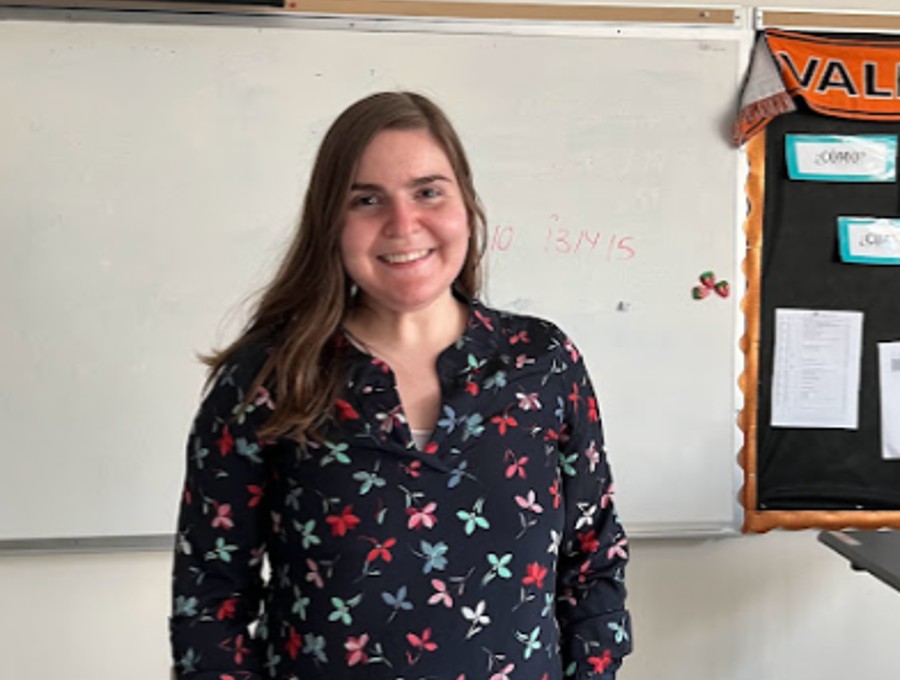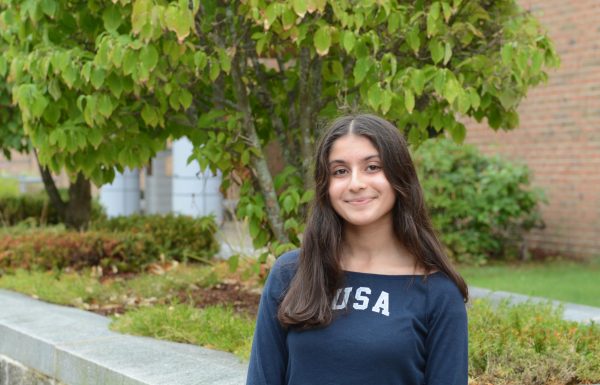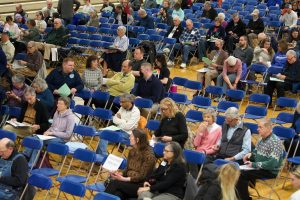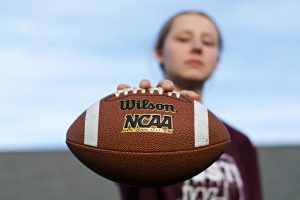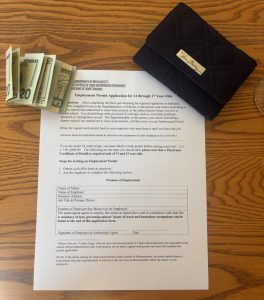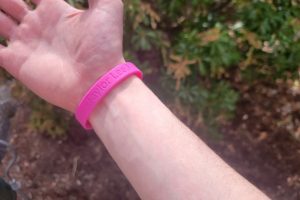New Spanish teacher Karaja is excited to continue her teaching journey at WA
Karaja smiles for a picture in her classroom.
October 30, 2022
After her first two years of teaching were overwhelmed with sudden and unexpected changes due to the pandemic, Spanish teacher Kristela Karaja is ready to settle down in WA.
Q: Where did you grow up?
A: I was born in Albania, but I grew up in Windsor, Connecticut.
Q: When did you move from Albania to Connecticut?
A: I was brought to the US by my parents. I was a toddler so I do not remember much of my childhood there, but we visited a lot when I was younger. I also lived in Albania for a year doing a research fellowship many years ago, so I got to reacquaint myself with the culture by living there for a year.
Q: Do you have any interests that you partake in outside of school?
A: Yeah, […] I do enjoy [watching] Netflix and things like that, but beyond that, I am an avid reader. I love reading in multiple languages, so in English and obviously in Spanish. I grew up speaking Albanian in my household, so I read in Albanian as well. I recently picked up a little bit of Danish so I read some books in Danish, too. […] I also really love taking walks and just spending time with my family when possible.
Q: What’s your favorite book that you have ever read?
A: I would say the one that was most meaningful to me was “Maus” by Art Spiegelman. That was a really important book for me because, first of all, it’s brilliant. […] It is a graphic novel in two parts. So [Spiegelman], interviewed his father who had been in the concentration camps during World War II. […] He ends up depicting through his artwork […], the conversations he had with his father, and he illustrates his father’s memory. That was really powerful for me. So while I could not relate to it on that [severe] level, I could relate in this way of having a difficult history following the family from one generation to another. Albania had a communist dictatorship, […] so I grew up with many stories of my father and mother, and how they navigated that system. […] But in my own way, I connected with at least having the narratives of the previous generations being so important and really shaping who I am today.
Q: How would you describe your experience working at WA so far?
A: It’s really wonderful. I am so excited to be in the community. […] Everyone is just excited to learn. I’m always laughing because there are so many wonderful personalities. Everyone is very warm and welcoming, both the students and my colleagues. Thus far, it’s been a great experience, and I anticipate it continuing to be so.
Q: What’s your favorite part about being a Spanish teacher, and what made you choose that as a profession?
A: I think my favorite part is interacting with others during the day, especially with students who are excited because they’re learning Spanish for the first time. My goal is to have this happen every time, but that wow factor is like, “oh, wow, I’m speaking in another language”. Interpersonal communication is so important to me. It helps me at least feel like this is a meaningful thing that I am dedicating my life and my time too. Also, I came to teach Spanish in a very roundabout fashion. Years ago, prior to training as a Spanish teacher, […] I was very much on the academic route. I was so certain I was going to be an English professor at a university and it felt like it was that or nothing. Really, the pandemic is what changed my perspective about what brings me joy and what I’m prioritizing. So what I really enjoy about teaching Spanish is that it’s very communicative and I get to keep my Spanish fresh while using it every day. I love teaching English as well, it just works a different part of my brain.
Q: Did you have any concerns about being a new teacher?
A: I think this is standard for many educators in a new environment, regardless of how much experience they have. I have been teaching Spanish for two years now, but the first year was almost entirely remote. The second year was in person, and then this year I switched over to Westford Academy, so it’s a different location. Every year has been something completely different. In some ways, it’s been three years of a lot of overwhelming changes, but I do feel like this change in location doesn’t seem as scary to me as having to do online teaching as a first-year teacher. So at this point, it’s a little bit hard at first, and I definitely had to just jump right in, but it is very manageable. And my colleagues have really been […] supportive in this transitional period.
Q: How do you feel about the behavior of students at WA?
A: I think it’s great. […] I have no complaints. What I really enjoy is that everyone’s very courteous. I have students who say “thank you” at the end of class, which is very lovely to hear, especially when you’re preparing things and trying to bring your best foot forward.
Q: Are there any major differences between WA and the other schools you’ve taught at?
A: Prior to working at WA, I worked at a progressive charter school in the area. So I’d say the major difference that I can see is simply in the matter of where I used to work, they did not have grades. Everything was more narrative based in terms of there being not an A or B or C assigned. So I would say that was the only major difference that I see. But in terms of pedagogical philosophy, I still see a lot of parallels. Even though WA gives A, B, and C grades. The pedagogy being the way people are teaching is still very much in line with the progressive values in which I was trained. So while there are some differences, I think the heart of it is very similar. So it’s not as it’s not a huge transition for me and I think that’s the most important part.
Q: Are you completely new to Westford, or have you been here before?
A: I am slightly new. I live in a neighboring town right now, but I lived near Westford for the first year of the pandemic. But I didn’t go out much, […], it was more so just [going] to the grocery store a couple of times and that was it. So I do feel new in that I’m finally getting to know the area a bit more and [being] out and about in it, even though technically I’ve lived nearby.

